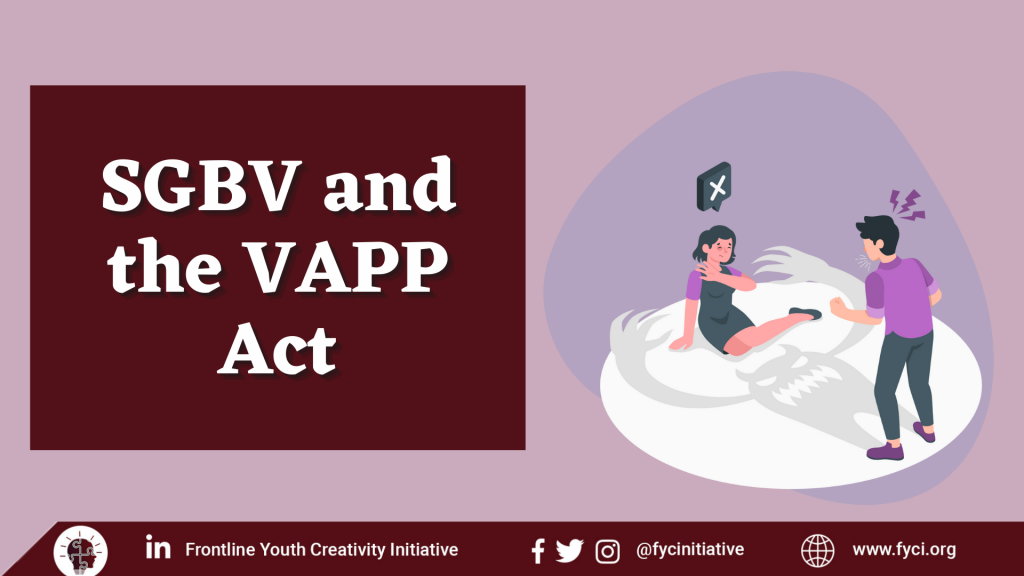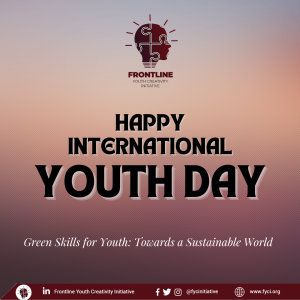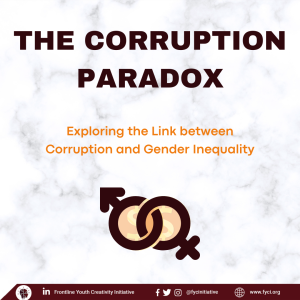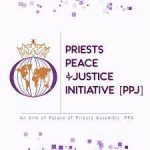What is SGBV?
Sexual and gender-based violence (SGBV) refers to violence that is perpetrated because of a person’s gender, or violence that affects a particular gender disproportionately. Around the world, women and girls are disproportionately affected by SGBV, as an estimated one in three women experience SGBV in their lifetime. For this reason, SGBV is sometimes referred to as violence against women and girls (VAWG).
Examples of SGBV are rape, sexual assault, intimate partner violence, forced marriage, female genital mutilation, sex trafficking, economic abuse, and emotional or psychological abuse.
What is the VAPP Act?
The Violence Against Persons (Prohibition) Act, also known as the VAPP Act, was passed in 2015 by the National Assembly. Four purposes can be gleaned from the long title of the Act:
- To eliminate violence in private and public life
- To prohibit all forms of violence against persons
- To provide maximum protection and effective remedies for victims
- To punish offenders
What are the positives of the VAPP Act?
- It provides a more expansive definition of rape to include penetration of the mouth or penetration of genitals with an object.
- It criminalises new offences, such as forceful eviction from home, economic abuse, emotional, verbal and psychological abuse, and abandonment of family without sustenance, all of which usually affect women and girls disproportionately.
- It criminalises cultural practices that are discriminatory to women and girls, such as harmful widowhood practices and female genital mutilation (also known as female circumcision).
- It provides not only punishment to the perpetrator, but also compensation and protection to the victim.
- It uses gender-inclusive language (he or she).
Which states have domesticated the VAPP Act?
When the VAPP Act was passed by the National Assembly in 2015, it was only applicable in the Federal Capital Territory, Abuja. Since then, the Act has been domesticated by 18 states in Nigeria: Abia, Adamawa, Akwa Ibom, Anambra, Bauchi, Benue, Delta, Ebonyi, Edo, Enugu, Jigawa, Kaduna, Kwara, Nasarawa, Ogun, Ondo, Osun, and Oyo States.
What gender-related offences are outlined in the VAPP Act?
Some of the offences in the VAPP Act and their penalties are outlined below. These offences may be categorised as SGBV depending on the circumstances in which they are carried out. The VAPP Act with the full list of offences can be accessed here.
Section 1
Definition: Intentionally penetrating the genitals or mouth of a person with a part of the body or any other thing without that person’s consent.
Penalty:
- Maximum of 14 years’ imprisonment where the offender is less than 14 years old.
- Minimum of 12 years’ imprisonment without an option of fine in all other cases.
- Minimum of 20 years’ imprisonment without an option of fine in the case of rape by a group of persons.
Section 2
Definition: Wilfully causing or inflicting physical injury on another person using a weapon, substance or object.
Penalty:
- Maximum of 5 years’ imprisonment or maximum fine of N100,000 or both.
Section 3
Definition: Coercing a person to engage in any act to the detriment of that person’s physical or psychological wellbeing.
Penalty:
- 3 years’ imprisonment.
Section 4
Definition: Wilfully or knowingly placing a person in fear of physical injury.
Penalty:
- Maximum of 2 years’ imprisonment or maximum fine of N200,000 or both.
Section 5
Definition: Compelling a person, by force or threat, to engage in any conduct or act, sexual or otherwise, to the detriment of that person’s physical or psychological wellbeing.
Penalty:
-
Maximum of 2 years’ imprisonment or maximum fine of N500,000 or both.
Section 6
Definition: Cutting all or part of the external genitals of a girl or woman, or engaging another to carry out such activity.
Penalty:
-
Maximum of 4 years’ imprisonment or maximum fine of N200,000 or both.
Section 9
Definition: Forcefully evicting one’s spouse or refusing them access to their home.
Penalty:
-
Maximum of 2 years’ imprisonment or maximum fine of N200,000 or both.
Section 10
Definition: Depriving a person of their liberty. Although no specific examples are given in the Act, examples may include physically restraining a person, confining them in an enclosed space, or denying them access to exit a certain area.
Penalty:
-
Maximum of 2 years’ imprisonment or maximum fine of N500,000 or both.
Section 11
Definition: Causing mischief or destruction or damage to a person’s property with intent to cause or knowing that it is likely to cause distress or annoyance to the victim.
Penalty:
-
Maximum of 2 years’ imprisonment or maximum fine of N300,000 or both.
Section 12
Definition: Causing forced financial dependence or economic abuse of a person, for example by denying them inheritance rights or unreasonably depriving them of household necessities.
Penalty:
-
Maximum of 2 years’ imprisonment or maximum fine of N500,000 or both.
Section 13
Definition: Forcefully isolating or separating a person from their family and friends by preventing them from leaving the home or having contact with family and friends.
Penalty:
-
Maximum of 6 months’ imprisonment or maximum fine of N100,000 or both.
Section 14
Definition: Causing emotional, verbal and psychological abuse to a person through a pattern of degrading or humiliating conduct. Examples include repeated insults, name calling, and repeated threats to cause emotional pain.
Penalty:
-
Maximum of 6 months’ imprisonment or maximum fine of N100,000 or both.
Section 15
Definition: Subjecting a widow to harmful traditional practices. Although no specific examples of harmful widowhood practices are given in the Act, examples may include forcing a widow to drink the bath water of a corpse. See also harmful traditional practices.
Penalty:
-
Maximum of 2 years’ imprisonment or maximum fine of N500,000 or both.
Section 16
Definition: Abandoning a spouse, child or other dependant destitute and without any means of sustenance.
Penalty
- Maximum of 3 years’ imprisonment or maximum fine of N500,000 or both.
Section 17
Definition: Repeatedly watching or loitering near the place where a person resides, works, studies, or happens to be.
OR
Following, pursuing or accosting a person in a manner which induces fear or anxiety.
Penalty:
-
Maximum of 2 years’ imprisonment or maximum fine of N500,000 or both.
Section 18
Definition: Uttering or conveying a threat or causing aa person to receive a threat, which induces fear, anxiety or discomfort.
Penalty:
-
Maximum of 1 years’ imprisonment or maximum fine of N200,000 or both.
Section 19
Definition: Intentionally and unlawfully touching, beating, striking, or using force or violence upon one’s spouse against their will, with the intention of causing bodily harm to them.
Penalty:
-
Maximum of 3 years’ imprisonment or maximum fine of N200,000 or both.
Section 20
Definition: Carrying out traditional practices which negatively affect the fundamental rights of persons, especially women and girls. Examples are denial of inheritance rights, female circumcision or genital mutilation, forced marriage, and forced isolation from family and friends.
Penalty:
-
Maximum of 4 years’ imprisonment or maximum fine of N500,000 or both.
Section 21
Definition: Using chemical, biological or other harmful liquid on a person with the intention to cause grievous bodily harm. Examples are pouring acid, hot water, or hot oil on a person.
Penalty:
-
Life imprisonment without an option of fine.
Section 22
Definition: Intentionally administering a substance to, or causing a substance to be taken by, another person with the intention of stupefying or overpowering that person so as to enable any person to engage in sexual activity with that person.
Penalty:
-
Maximum of 10 years’ imprisonment or maximum fine of N500,000 or both.
Section 23
Definition:
Intentionally exposing one’s genital organs, or a substantial part of it, with the intention of causing distress to the other party, or induced that party to commit an offence under the VAPP Act.
OR
Intentionally exposing one’s genital organs, or a substantial part of it, and inducing another person to either massage or touch it with the intention of deriving sexual pleasure from it.
Penalty:
-
Maximum of 1 year imprisonment or maximum fine of N500,000 or both.
How can young people prevent SGBV?
- Educate yourself on SGBV issues.
- Start a conversation on SGBV issues among your friends, family members, school mates, and peers.
- Sensitise others on the costs and consequences of SGBV as outlined in the VAPP Act.
- Report SGBV cases to the appropriate authorities. This might be the police, the Federal Ministry of Women Affairs National GBV Situation Room (hotline: 08031230651), the FCT SGBV Response Team (hotline: 08078111126), the Lagos State Domestic and Sexual Violence Response Team (hotline: 08000333333), or a crisis support service provider (click here for a directory).
- Advocate for legal and policy reforms aimed at preventing SGBV (such as the domestication of the VAPP Act in your state).
- Promote anti-SGBV messaging through the social media and the creative arts.
In order to spur young people into taking these preventive steps, FYCI is instituting an annual Young Voices Against SGBV Award. Click here for more details.







I one among the many young ladies who.have witnessed the effect of GVC and I must say that this article had been really helpful. I will definitely share this among my friends.
Cheers!!